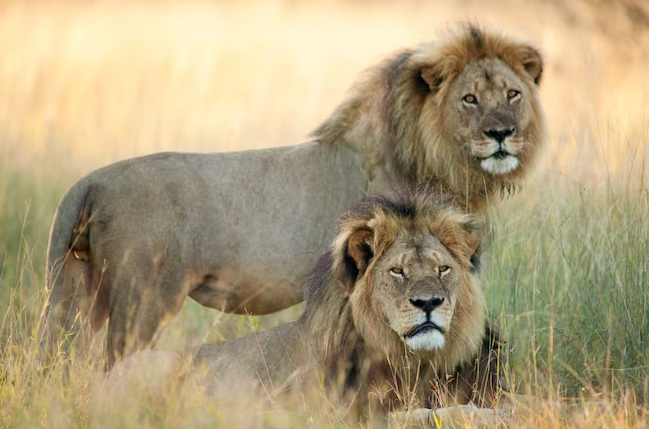
The killing of a young woman by a lion at a private game reserve in South Africa has stirred debate among the conservation community about the rules governing such enterprises and the role of such experiences in saving the species.
On Tuesday, a 22-year-old, unnamed woman was mauled to death while visiting a popular private wildlife sanctuary run by Kevin Richardson, the well-known “Lion Whisperer,” near Pretoria. Richardson and the sanctuary could not be reached for comment at the time of this publication, but Richardson wrote on his Facebook page that “I am devastated, and my heart goes out to this young woman’s family.”
Richardson wrote that the woman had not been staying at his sanctuary but had been on the grounds to accompany a friend who was conducting an interview with the manager of the sanctuary’s associated Dinokeng Big 5 Game Reserve, a tented camp that is popular with tourists. After finishing the interview, the woman began taking photos with her friend.
At the same time, “myself and an experienced colleague took three lions walking in the reserve, as we do on a weekly basis, as part of their exercise and stimulation regiment,” Richardson wrote on Facebook. “We assessed the landscape for other big 5 animals and as per procedure sent out a notification that we were walking in the reserve. One of the lionesses charged off after an impala and must have run 2 to 2.5 kilometers [1.2 to 1.5 miles] where she encountered the 22-year-old outside the car.”
Martha Honey, the executive director of the Center for Responsible Travel—a Washington, D.C.-based nonprofit that advocates responsible tourism—says people shouldn’t blame the lion for doing what big predators do. “We have to remember that wild animals remain wild, even if they are in cages—even if the cages are large, cordoned-off areas,” says Honey. “Human beings set up that situation.”
It’s currently unclear what happened to the lion after the attack. Honey says in many cases the big cat would be shot.
“That’s not right,” she says. “Human beings put the lion within this cage, even though it’s a rather large cage, and subjected it to other human beings, so we have a responsibility to recognize its continued wildness and not blame the animal.” (Learn about a death at an animal park in China.)
Are Lion Walks a Good Idea?
National Geographic explorer and big cat conservationist Luke Dollar says people in lion or other big predator territory must always remain alert and “acutely aware of our place in the food chain.” Where possible, stay in a vehicle, he says, which offers much better protection and more options for escape. And work with experienced guides who know animal behavior and the local area well, adds Dollar, who is also a professor in the Department of Environment and Sustainability at Catawba College.
Honey agrees that walking safaris near known predators can be dangerous. If they are pursued they need to be done with expert guides and should be near vehicles. Experiences that expressly bring people and lions together on “walks” are risky because of the unpredictable nature of the wild animals, she says. Although Richardson was not walking the lions in the immediate or known presence of tourists, other private game managers on the continents do offer such close-contact experiences for guests.
“While it may be a thrilling experience for a person to do, and they may think they are helping wildlife by doing so, I don’t see an obvious connection,” Dollar says of such tourist walks. “If we love these cats so much why do we feel the need to touch them or hug them or walk with them, as though that is a natural occurrence?”
You May Also Like

How to survive an encounter with wildlife—from bears to bison

Are South Africa’s captive lions inbred?

Who buys lion bones? Inside South Africa’s skeleton trade
Many people who may participate in lion walks may not realize that if the big cat makes a wrong move, it may be shot by a watchful guard. “If they did know that, would that change their interest?” Dollar asks.

Such close proximity to animals is rarely allowed, at least legally, on national parks around the world. But the rules are often much more blurred on private reserves, where governments often have less legal or practical oversight. On public lands, guides must often follow strict codes that require them to stay on paths, avoid baiting and disrupting wildlife’s natural activities, and keep at safe distances. Sometimes private reserves have their own codes, but they are rarely standard and aren’t always followed, says Honey. (Learn about the National Geographic Society’s Big Cats Initiative.)
Do Private Reserves Help Conservation?
“We need more carefully developed, agreed upon protocols for private reserves that parallel what has been developed for national parks,” says Honey.







In South Africa, there are more game animals on private land (some 20 million) than in public parks (5 to 6 million).
So even bigger picture, people need to look at the overall role of these private reserves in conservation, Honey says. “Is this really helping to protect animals that are endangered?”
Some private reserves are very well managed and support science-based conservation programs, such as captive breeding and reintroduction and public education campaigns. But others were hastily cobbled together, sometimes on marginal lands of little ecological value. Sometimes species that are exotic to a region are brought in to attract tourists, even though staff may be ill-equipped to manage them. Some reserves promote controversial “canned hunting,” in which hunters pay for the right to shoot a lion in a closed-off area.
“Behaviors and programs that skirt the reality of our place in the food chain seem to be an accident waiting to happen,” says Dollar.







